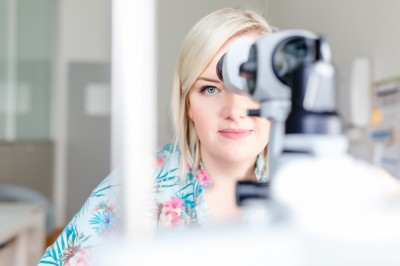Life without glasses is great
Life without glasses is great
Life without glasses is great
Life without glasses is great
Life without glasses is great

Winter brings the beautiful holiday season and fun in the snow, but unfortunately, it also poses a significant burden on our eyes. While we take eye protection for granted in summer, we often forget about it when the sun isn't shining. During winter, our eyes are exposed to various risks. What dangers lurk for our eyes in winter, how to prevent them, how to protect our eyes, and what to do in case of difficulties, advises Lucie Frantlová, MD, head physician of the outpatient operations at Eye Centre Prague and the MediPort network.
The winter season is naturally associated with cold, frosty air, which can cause unpleasant tearing of the eyes or, conversely, dryness, burning, or redness. Eyes that have reduced tear production or poor tear film quality tend to be more susceptible. Additionally, the more frequent wind during this season dries out our eyes and can blow dust and dirt into them. This can lead to irritation and even conjunctivitis and corneal inflammation.
"If your eyes become irritated, it is certainly advisable to use eye drops, such as Ophthalmo-Septonex or drops containing eyebright. In case of eye irritation, apply these drops 3–4 times a day to soothe the eye. If the drops do not help or if the pain worsens, be sure to visit an eye doctor," advises Lucie Frantlová, MD.
During the winter, we often encounter significant temperature extremes, moving from frosty air into overheated rooms with dry air. The human body is not built to handle such drastic temperature changes, and this also applies to our eyes. During these transitions, our eyes tend to dry out, leading to stinging sensations or, conversely, reflex tearing.

"Ideally, it is best to use artificial tears more frequently—drops that help moisturize the surface of the eye, thereby strengthening the natural tear film. Dry eyes should certainly not be underestimated in the long term, as neglect can lead to the development of dry eye syndrome, potentially resulting in inflammation of the cornea and conjunctiva," advises Dr. Frantlová.
In winter, we often indulge in relaxation in saunas. Immediately after a sauna visit, some people may experience burning sensations in their eyes or a feeling of dryness. In this case, eye moisturizing drops can also help resolve the issue.
Sunglasses are just as important in winter, especially if you're heading to the mountains. Sunlight and UV rays can be dangerous for our eyes, particularly at high altitudes where the air is thinner and UV radiation reflects off the snow.
"Excessive exposure to sunlight primarily affects the conjunctiva. When intensely exposed to UV rays, it can become red, leading to tearing, itching, burning, and scratching sensations. Insufficient protection from long-term UV exposure can also cause more serious problems with the retina and may promote and accelerate the development of cataracts," explains Dr. Frantlová.
While skiing, we should protect our eyes from the wind and flying snow with protective goggles.
In winter, the days are short, and lighting conditions can be poor. Inadequate or low-quality lighting primarily increases eye strain, which can lead to fatigue and headaches.
"You can alleviate tired eyes by applying cold compresses and using moisturizing drops. Choosing artificial lighting that closely resembles natural daylight is also important. If you work on a computer or other electronic devices, you should adjust the screen brightness to match the surrounding environment and follow the 20/20/20 rule, which means every 20 minutes, look at something 20 feet away for 20 seconds," advises Frantlová, MD.
Poor lighting conditions and reduced visibility can significantly affect drivers. Some may experience deteriorating vision under low visibility conditions.
"In the dark, the pupils dilate, which can reveal imperfections in the optical system that we do not perceive under normal lighting conditions. In these cases, it should always prompt a visit to the eye doctor," adds the physician.
Copyright © 2025, Oční Centrum Praha a.s.
All rights reserved. Website created and managed by iNDiGOmultimedia s.r.o.
